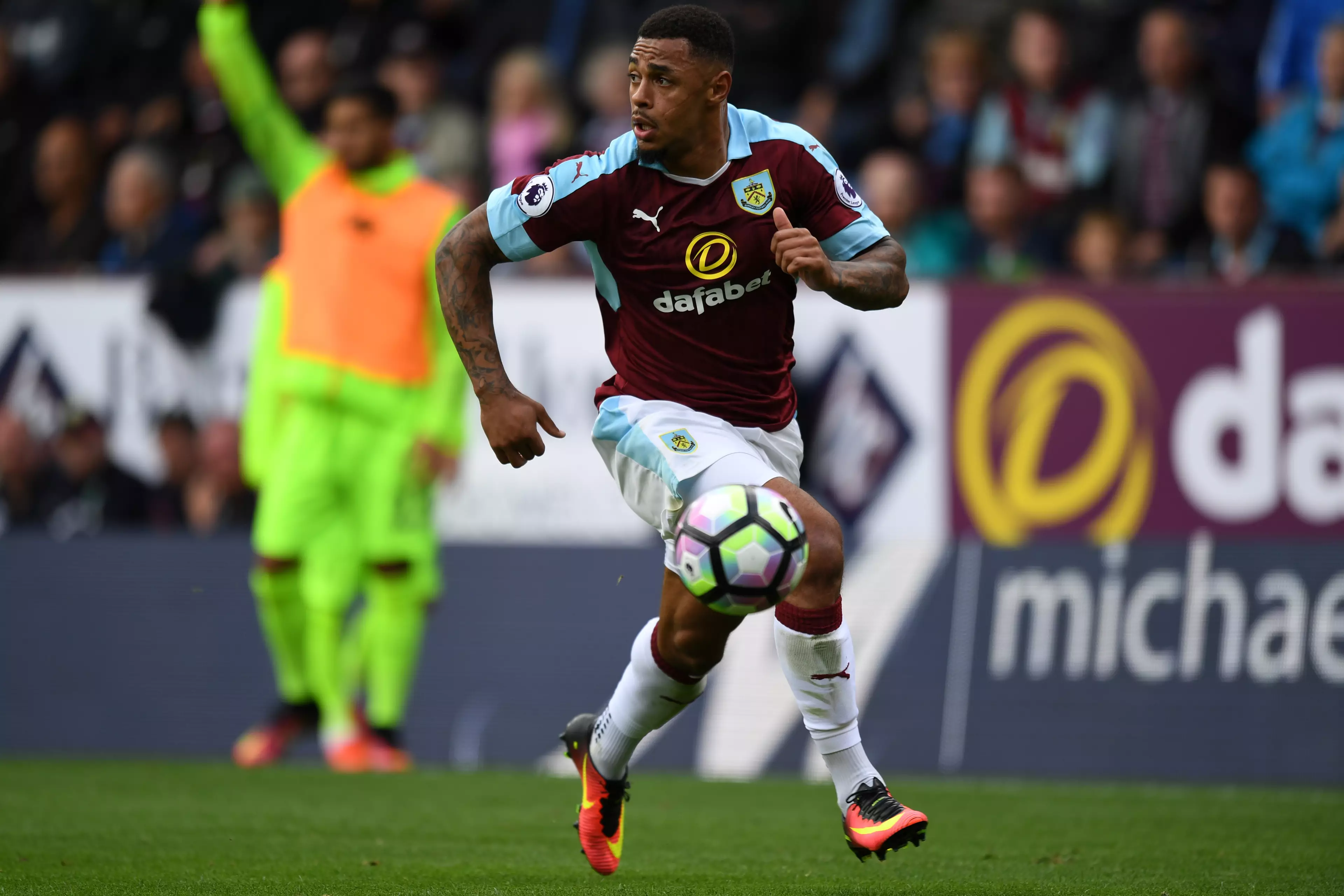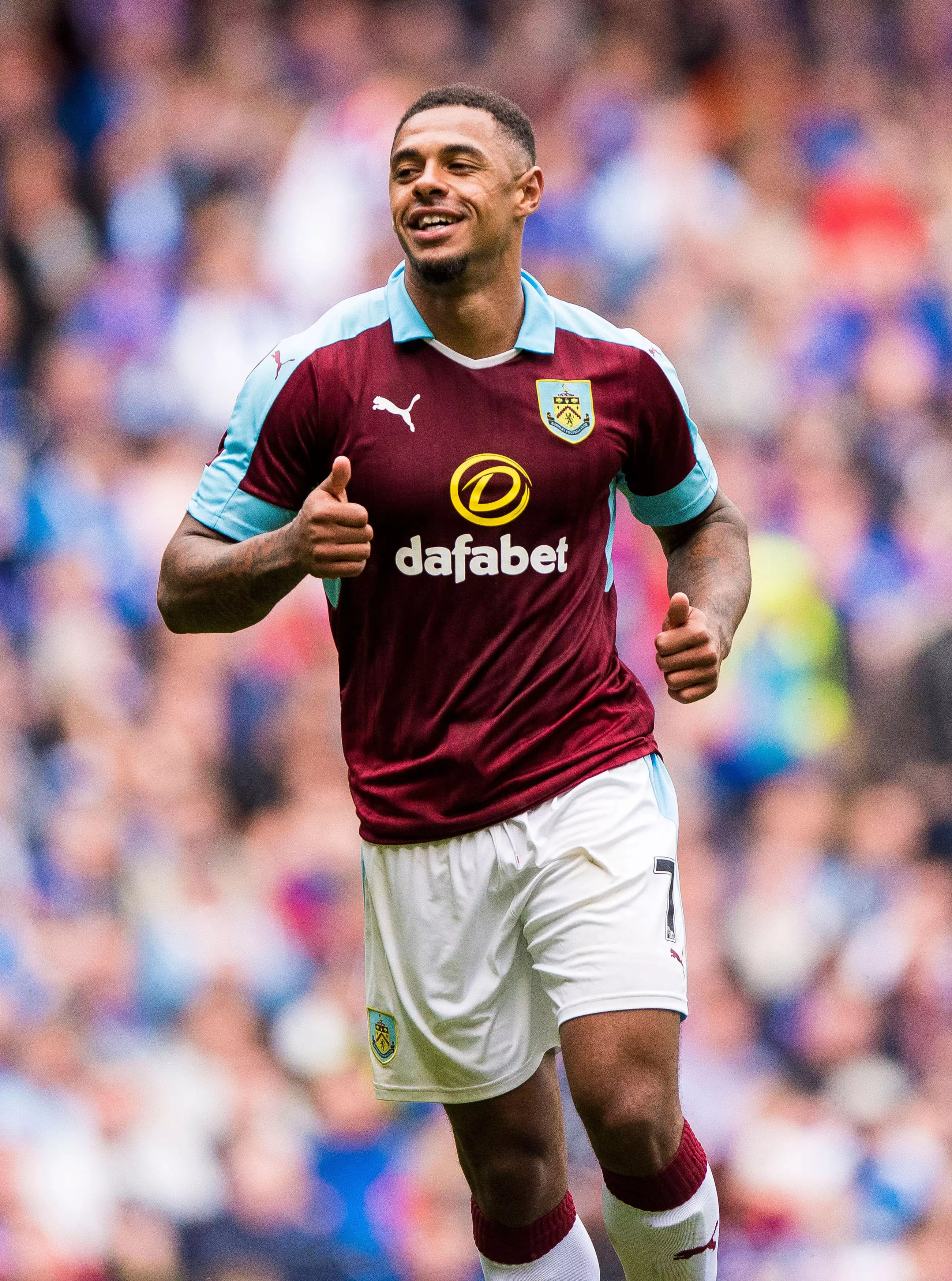
It would have been quite nice to see the expression on Andre Gray's face, after he picked up his phone following his match winning display against Liverpool, saw the number of notifications, and flicked through in anticipation of praise and adulation. A "gaffe" doesn't really cover these kind of situations, and particularly not when you've called for an entire class of persecuted people to be burned alive.
Of course, since then, the tweets have been deleted, and the man himself has made an attempt at redemption, through the usual Twitter climbdown.
Advert
Gray's apology has left many unconvinced. We're used to this, after all. The wee paper clip materialises on the PFA Laptop and says "it looks like you're trying to write an apology for rank bigotry!" before inserting apologies to "anybody I may have offended", stressing their "big mistakes" and clarifying they are "absolutely not a homophobe/racist/zionist/sectarian/delete as applicable." We saw it with John Terry, we saw it with Luis Suarez, and we saw it with Samir Nasri.
Yet this time, something feels different. It was laughable to hear, in the former two cases, of men who had been found guilty of calling someone a "black c**t", or saying "I don't talk to blacks" apologise before clarifying and insisting they were not actually racists. This is pretty standard. There are no racists in the world by these standards, just ordinary non-racist people doing incredibly racist things. The difference with Gray is that he had not said it a matter of days ago as a grown man. He had tweeted it four years ago, and the time since passed was that between adolescence and adulthood, in vague footballer-years at least.
Gray now insists he's a changed man, saying: "The tweets were posted four years ago when I was a completely different person to the man I am now. I was at a very different point in my life back then - one that I've worked hard to move on from... I have experienced a lot over the past four years and have had to take responsibility for a number of things in my life which has enabled me to mature and grow as a person since that time... Thankfully I am not the guy I was back then and will continue to work hard both on and off the pitch to become a better person."

And, well, fair enough. Is it really so inconceivable that a man might have changed his opinions in four years of growing up? Gray's remarks might have been the wildest and most offensive we've yet seen from a Premier League footballer, but if he says he's changed, what other option do we realistically have but to take him at his word? Gray insists he's not a homophobe - how is it possible to condemn someone for opinions they do not claim to hold?
Advert
Another difference, perhaps most strikingly with Samir Nasri's Quenelle, was the bluntness of the apology. There was no attempt to weasel out of it, to put it down to a misunderstanding, a simple mistake or anything other than the bigotry it was. Gray says he's not a homophobe now - he made no claim not to be a homophobe then. He appears to be genuinely ashamed of his past self. Again, on what basis can we flatly refuse to believe him?
There followed an unhelpful interjection by Joey Barton later in the day, as Rangers' fifth-best midfielder came out with a more classical apology for his pal. It was the standard "I know him, he's a good lad, don't be harsh on him", and included the pretty dismal "don't let that deflect from how well he did today and what a fantastic result from Burnley", a reflection of the days of Suarez "redeeming himself" by scoring lots of goals for Liverpool.
Advert
Advert
Still, it's hardly as if Barton has no track record of making decent points in a clumsy and embarrassing manner. As he points out, he does have a genuine and admirable track record of standing up for gay rights in football, and speaking out on a matter he wasn't obliged to. Gray might be a pal, but he's a player he played alongside for one season at Burnley, not a tight childhood friend. Barton has played for six clubs in a fourteen-year professional career - that would be a hell of a lot of pals he'd choose to abandon his principles to defend. Again, is it not possible that Barton is speaking from a position of sincerity here? Just maybe?
Advert
Football has made slow progress in the field of homophobia, but it's a difficult path to work out. Plenty of people have their own reasons for not being openly LGBT outside of Ibrox or Villa Park. It's probably that even in 2016, being in the closet is still the majority experience, as anybody who's been on Grindr will be able to clarify (an app, incidentally, that the Sun advertised their own football coverage on.)
Football undoubtedly has its own, more specific problems, but any similarly testosterone-charged environment has them too. Football simply gets it in the neck because it's much higher-profile, and its fans form an easy mob on which the problems of society can be deflected. Whenever the question is asked of gay representation in football, "the fans" are always the last line of defence to render it unworkable.
In short, Andre Gray is not the problem. He was the most extreme manifestation of the problem when he took to Twitter demanding 'gays' be burnt alive, but we are told that Andre Gray no longer exists. If it does prove to be a cop-out and his mask slips, then few possible sanctions would be too great. But we simply have no logical reason, and no right, to condemn a man now for beliefs he does not claim to have. It would be nice to see Gray do something more to back up his position, but the only option available for LGBT people, and football as a whole, is to take him at his word, accept his apology and give him the forgiveness he asked for.
WORDS BY CALLUM HAMILTON

